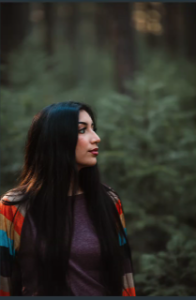Since the historic Held v. State of Montana trial began on June 12, 2023, in the Lewis and Clark County District Court in Helena, MT, Judge Kathy Seeley presiding, we recorded and archived the audio to preserve the record to inform and allow listeners to hear for themselves what transpired.



In this edition we share the unedited recording of the testimony of youth plaintiff, Sariel Sandoval. She is now 21 years old, and she was 17 when the case was first submitted in 2020. She grew up in Ronan, MT, a member of the Confederated Salish and Kootenai Tribes (CSKT), but she now lives in Berkeley, CA and attends the University of California there.
Sariel spoke of the importance of her cultural traditions, including language and relationship with the land, and the impacts climate change is already having on her people’s sustenance, and the passing on of those cultural traditions from Tribal Elders to youth, which depend on snow at the proper times.

For the first time in the United States, youth plaintiffs were able to present their case in a court of law, that their inalienable constitutional rights under Article II Section 3 of the Montana State Constitution “to a clean and healthful environment and the rights of pursuing life’s basic necessities, enjoying and defending their lives and liberties, acquiring, possessing and protecting property, and seeking their safety, health and happiness in all lawful ways.” ….. were being denied and violated by the policies and actions of their government. Further, that The State was in violation of their responsibilities as required under Article IX, Environment and Natural Resources, Section 1. Protection and Improvement that “The state and each person shall maintain and improve a clean and healthful environment in Montana for present and future generations. Section 2. The legislature shall provide for the administration and enforcement of this duty. and Section 3. The legislature shall provide adequate remedies for the protection of the environmental life support system from degradation and provide adequate remedies to prevent unreasonable depletion and degradation of natural resources.”
